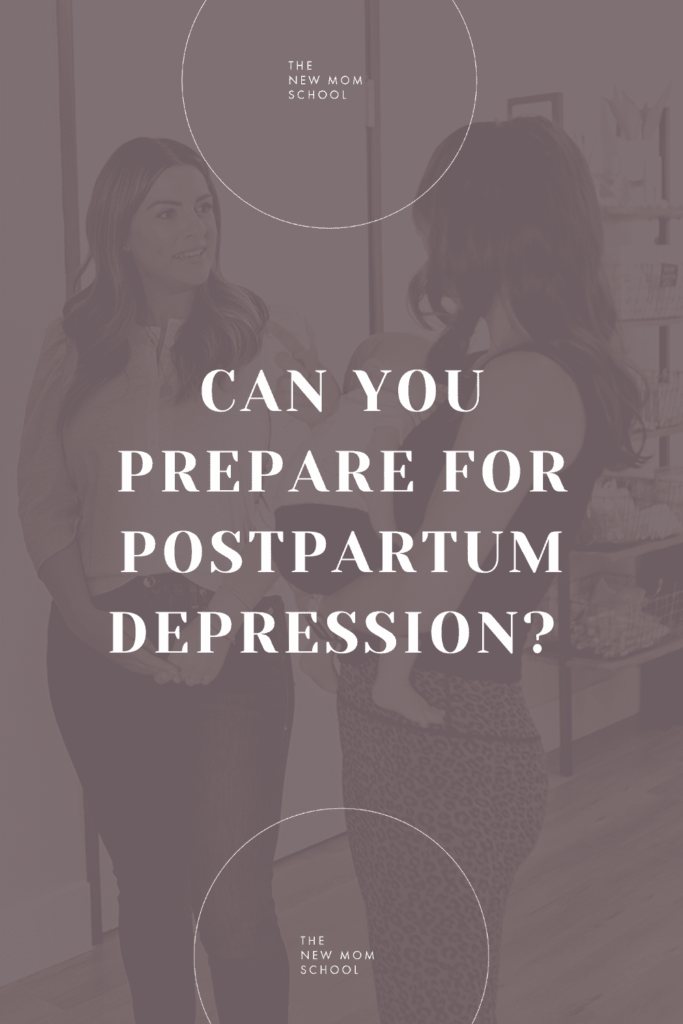Postpartum depression does not discriminate. While some moms might be at higher risk of experiencing a perinatal mood and anxiety disorder, it can also strike you “completely out of the blue”.
- As many as 1 in 5 women will experience some type of perinatal mood and anxiety disorder.
- Furthermore, it is thought 7 in 10 women hide or downplay their symptoms.
The American College of Obstetricians and Gynecologists actually recommends in order to optimize the health of women and infants, postpartum care should be an ongoing process, rather than a single encounter.
As Dr. Marie Sharpe from Newport Center for Women’s Health explains: “Much emphasis is placed on the third trimester when we see pregnant women weekly. As obstetricians, we realize the need for more support and guidance after birth.”
Yet despite this advice, and the no-doubt great relationship you’ve already built with your doctor, OB care typically comes to a screeching halt at that 6-week postpartum checkup, far before your body and mind are healed. And what about all those weeks in between birth and 6 weeks?
At New Mom School, we’re committed to doing everything we can to elevate the postpartum experience and help you flourish in the fourth trimester and beyond, and we have some incredible doctors who have endorsed the benefits of being a part of our programs.
“After having two children myself, I understand the great transition that occurs after childbirth. Not only is a mom healing, adjusting to hormone fluctuations, and dealing with sleep deprivation, she is also learning how to best care for her newborn child.
“I wish I had something like The New Mom School when I was postpartum. I know I would have benefited from the weekly gatherings of women going through the same challenges. I am especially impressed with the content that they provide from lactation support to addressing mental health concerns.
“I recommend their classes to all my patients, and I love hearing about the long-term friendships that develop. Their playgroups and second child classes continue to build on that foundation.” — Dr. Zhanna Pinkus, OB/GYN Newport Center for Women’s Health.
The weeks following birth are a critical period for a woman and her infant, setting the stage for long-term health and well-being.
Whether or not you’ll experience some type of postpartum mood and anxiety disorder is not something you can predict or anticipate. But it is something you can prepare for by surrounding yourself with the right support team.
“The transition into being a new mom is joyous, but can be tremendously overwhelming and isolating. A new mom’s health and emotional state impacts her newborn’s health, and having the right support following a child’s birth is essential for any new mom.
That’s why I recommend The New Mom School to every new mother.” — Dr. Steven Abelowitz, Pediatrician, Founder of Coastal Kids Pediatrics.
Here’s what you can do:
- If you’re currently pregnant, register for our Newborn Class Series.
- If your baby has been born, check availability in our Newborn Class Series, or register for an upcoming Infant Class Series (when your baby is 3-6 months).
- Visit our Resources Page for the contact details of some incredible therapists and other postpartum support providers.
We’ve got you, Mama.
Want support that actually gets it?
Find your local New Mom School and connect with a community of moms, experts, and real talk that makes the fourth trimester feel a little less overwhelming.
Wishing there was a New Mom School closer to you?
You might be the one to bring it there. Learn how to open a location in your town.


